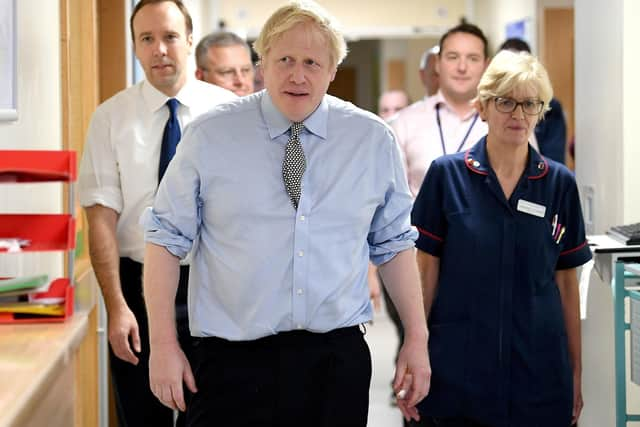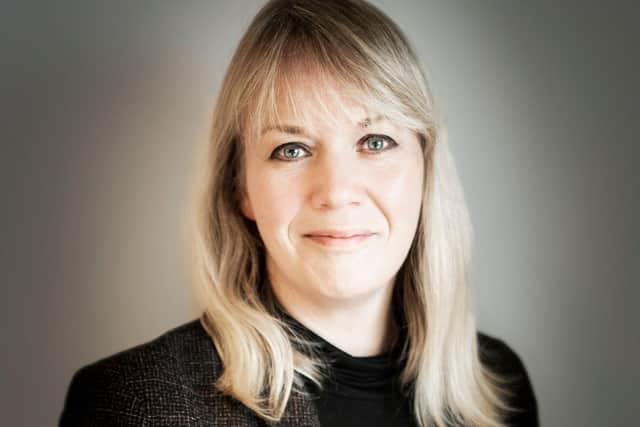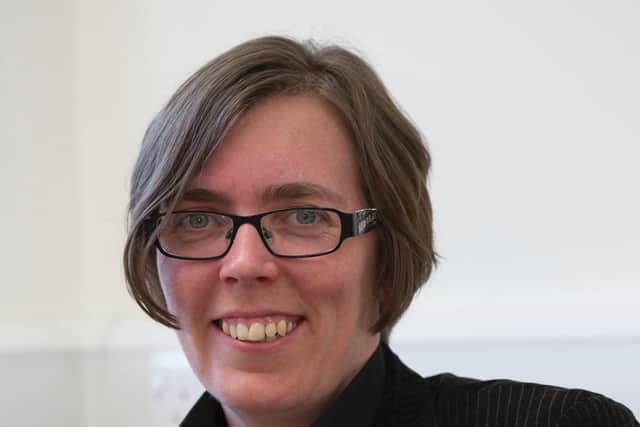North-South health divide to widen as region hit hardest over toll from virus crisis, northern health chiefs warn
New research by the Northern Health Science Alliance (NHSA) shows deprived urban areas in northern England are being hit with higher rates of Covid-19 deaths, higher death rates from all causes and bigger increases in unemployment.
The research, seen by The Yorkshire Post, is a collaboration with the NIHR Applied Research Collaborations (ARCs) in the North East and North Cumbria and Greater Manchester.
Advertisement
Hide AdAdvertisement
Hide AdAcross Yorkshire, results revealed, Leeds, Bradford, Wakefield, Sheffield and Rotherham are all above the English average in all three areas.


Wakefield recorded the highest covid mortality rate with 42.1 deaths per 100,000, the second highest was in Rotherham (37.7 per 100,000), followed by Bradford (34.8 per 100,000).
While Greater Manchester was hit with a 51.4 death rate with Salford worse affected in the region (92.6), compared with a 26.8 death rate in the South East.
In a challenge to Boris Johnson's levelling-up agenda, the senior NHS and university leaders argue that this impact of the virus and lack of action will drive health inequalities which are holding back the northern economy and help widen the North-South health divide for future generations.
Advertisement
Hide AdAdvertisement
Hide AdHannah Davies, the Health Inequalities lead for the NHSA, said: "The impact of the disease on areas already suffering from greater health inequalities will leave a long, devastating impact across the North of England, and particularly in urban areas if action is not taken by government now.


"As the Government looks to its levelling up agenda it must pay close attention to where it can support the health and wealth of the region and support local authorities, the NHS, and metro mayors to make decisions based on the needs of their population."
The team used data from the Office for National Statistics (ONS) to map figures for the last six weeks on Covid-19 deaths, deaths from all causes, and unemployment figures, to build up a picture of how the virus is affecting different parts of England.
They then mapped across the main train lines in England to see how different urban and rural centres performed compared to the national average.
Advertisement
Hide AdAdvertisement
Hide AdMain centres in the North including Manchester, Liverpool, Newcastle and Durham are also above the average in all three areas whereas Slough is the only place outside of the North to be red in all areas.


Professor Clare Bambra, from Newcastle University, said the maps show the stark regional inequalities in the impacts of the pandemic across the country.
She said: "The Northern hotspots should be prioritised as Covid testing roles out and new NHS investment and public health investment should target those areas most effected".
Professor Bambra added, to avoid a parallel mental health pandemic, economic and social measures to ‘level’ up the regions need to be implemented "as soon as possible."
Advertisement
Hide AdAdvertisement
Hide AdUnemployment rates were added into the map as these have a proven link to mental health and suicide and are a strong indicator of future health inequalities.
Across the Yorkshire and Humber region the unemployment rate rose from 3.5 per cent to 5.7 percent, compared to a rise from 2.2 per cent to 3.9 per cent in the South East.
Both North and South Yorkshire saw a 2.2 per cent rise in unemployment, followed by West Yorkshire with 2.1 per cent while East Riding of Yorkshire saw a 2.0 increase. Scarborough has been worse hit with a 3.1 per cent rise in unemployment while Hull had the second highest increase with 2.8 per cent, followed by Doncaster with a 2.6 per cent difference.
Elsewhere the unemployment rate rose from 4.2 per cent to 6.7 per cent in Greater Manchester.
Advertisement
Hide AdAdvertisement
Hide AdDr Luke Munford, from the University of Manchester, said the results show that Covid-19 is impacting parts of the country in different ways, with a North-South divide emerging.
He said the unemployment data, particularly, is a cause for concern as pre-Covid-19 unemployment rates in the North were already above the English average, and they are increasing much faster than they are in the south.
Dr Munford said: "Given the well-known link between unemployment rates and mental health and suicides, these data would suggest that action needs to be taken in the North."
Earlier this year the NHSA, which brings together research intensive universities and NHS teaching trusts, revealed that poor health accounts for one third of the productivity gap between the North and the rest of the UK, at a cost of £13.2bn a year.________________________________
Advertisement
Hide AdAdvertisement
Hide AdEditor’s note: first and foremost - and rarely have I written down these words with more sincerity - I hope this finds you well.
Almost certainly you are here because you value the quality and the integrity of the journalism produced by The Yorkshire Post’s journalists - almost all of which live alongside you in Yorkshire, spending the wages they earn with Yorkshire businesses - who last year took this title to the industry watchdog’s Most Trusted Newspaper in Britain accolade.
And that is why I must make an urgent request of you: as advertising revenue declines, your support becomes evermore crucial to the maintenance of the journalistic standards expected of The Yorkshire Post. If you can, safely, please buy a paper or take up a subscription. We want to continue to make you proud of Yorkshire’s National Newspaper but we are going to need your help.
Postal subscription copies can be ordered by calling 0330 4030066 or by emailing [email protected]. Vouchers, to be exchanged at retail sales outlets - our newsagents need you, too - can be subscribed to by contacting subscriptions on 0330 1235950 or by visiting www.localsubsplus.co.uk where you should select The Yorkshire Post from the list of titles available.
Advertisement
Hide AdAdvertisement
Hide AdIf you want to help right now, download our tablet app from the App / Play Stores. Every contribution you make helps to provide this county with the best regional journalism in the country.
Sincerely. Thank you.
James Mitchinson